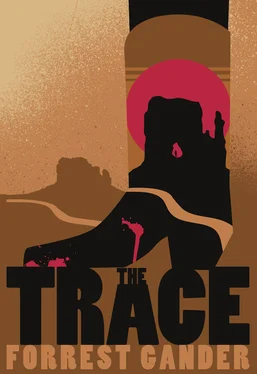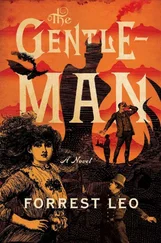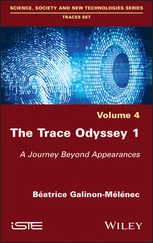Forrest Gander - The Trace
Здесь есть возможность читать онлайн «Forrest Gander - The Trace» весь текст электронной книги совершенно бесплатно (целиком полную версию без сокращений). В некоторых случаях можно слушать аудио, скачать через торрент в формате fb2 и присутствует краткое содержание. Год выпуска: 2014, Издательство: New Directions, Жанр: Современная проза, на английском языке. Описание произведения, (предисловие) а так же отзывы посетителей доступны на портале библиотеки ЛибКат.
- Название:The Trace
- Автор:
- Издательство:New Directions
- Жанр:
- Год:2014
- ISBN:нет данных
- Рейтинг книги:3 / 5. Голосов: 1
-
Избранное:Добавить в избранное
- Отзывы:
-
Ваша оценка:
- 60
- 1
- 2
- 3
- 4
- 5
The Trace: краткое содержание, описание и аннотация
Предлагаем к чтению аннотацию, описание, краткое содержание или предисловие (зависит от того, что написал сам автор книги «The Trace»). Если вы не нашли необходимую информацию о книге — напишите в комментариях, мы постараемся отыскать её.
The Trace — читать онлайн бесплатно полную книгу (весь текст) целиком
Ниже представлен текст книги, разбитый по страницам. Система сохранения места последней прочитанной страницы, позволяет с удобством читать онлайн бесплатно книгу «The Trace», без необходимости каждый раз заново искать на чём Вы остановились. Поставьте закладку, и сможете в любой момент перейти на страницу, на которой закончили чтение.
Интервал:
Закладка:
The old man next to Dale sucked in his cheeks and blew out wheezily. “Jesu Cristo,” he coughed and spat.
Dale turned to follow the old man’s eyes toward the park entrance. The sheriff had lowered the bandana from his mouth and was giving instructions to a deputy. Behind the sheriff, two men struggled with a heavy black trash bag. One wrestled with the tied mouth of the bag while the other held the opposite end by its edges. Whatever was in the bag had slumped to the center, and because neither man had a grip on the contents, the bunched and sagging plastic threatened to break. They put the bag down at the curb, one of the men preoccupied by something on his trousers, the other wheeling back toward the park entrance to see how two porters behind him were managing their load. The second pair lifted and swung their own bag forward two feet at a time, letting it drop to the ground between heaves. They did this repeatedly, passing the first men and their bag. The crowd went silent and shifted silently to give them room. With their backs bent, the second two men swung their bag a few feet forward at a time up the calle central to the mule-drawn wagon, which now faced away from the park. Both drivers helped the two men lift the bag into the wood-slatted bed. A dog was barking furiously.
Meanwhile, Hoa came up to where Dale was standing.
“What’s going on,” she asked in a whisper, inclining toward him.
“Some bags they’re hauling out of the park.”
“Bags of what?”
The man with the slicked-back hair turned his ear toward them. The old man Dale had engaged earlier propelled himself away on his cane, replaced by a swarm of teenage boys. Three men with grime-stained hands drifted up behind Hoa. There were more than a hundred people clustered around the park entrance now, and they began to chatter again in a rising polyphonous clamor.
Under the direction of the sheriff, a third pair of men emerged from between the concrete barriers, struggling with another slippery garbage bag. The setting sun caught itself on the minaret of the clock tower. The dog that had been barking shrieked three times in decrescendo. Dale felt his phone vibrate in his pocket and checked it, but the face was dark, it was turned off.
“Maybe we should go,” Dale said.
* * *
Ten miles further on, they thumped across uneven railroad tracks at an abandoned station. The entire side of a large, concrete barn was painted with a Dreamsickle-orange advertisement. An array of Corona bottles with lime wedges fanned-out like playing cards from a central Corona Extra. After another half mile, the paved road forked and a road sign pointed them toward Sierra Mojada. Still, it was another fifteen unendurably slow minutes before they entered a broad valley ringed by knuckled mitts of stone. The road straightened, and a sprawling town came into view. The sudden display of painted structures — white and turquoise and umber in faded pastels — made Hoa almost giddy.
By then, shadows were digging long black gouges in the mountains around them.
“Can you stand to see the cemetery first?” Dale asked. “And then we get something to eat and then the hotel?”
“Just as long as we get out of this fucking car.”
“That’s the point.” He smiled for the first time in hours.
“So what was going on back there?” Hoa asked. “I know they decapitate people, the drug dealers. And the heads show up somewhere and the bodies show up somewhere else.”
“Not really around here,” Dale tried to sound authoritative and change the subject. “Bierce writes about that.”
“About what?”
“I don’t mean the drug stuff. He wrote a book called Write It Right . A dictionary of misused terms.”
“I don’t get the connection.”
“Oh,” Dale shrugged. “Just something that clicked in my head. Bierce says it’s wrong to say the body was here and the head over there. Because the body’s the whole physical person. Including the head. So you say the trunk of the body is over there. And the trunk can include the limbs. Anatomically. .”
“Anatomically?” Hoa repeated.
“Yeah, anatomically the trunk’s just the torso.”
Death of Bierce in Sierra Mojada
From the cemetery, Dale drove them back to town with loose stones crunching and yellow dust billowing behind them. People were out on the streets, matrons in embroidered skirts and, incredibly, sweaters. There were younger women in jeans and men driving pickups, their lined brown faces shadowed under gaucho hats. Dale turned off the AC, rolled down the windows, and the heat rushed in like a sigh. Hoa rested her elbow on the open window edge. Lace curtains, fixed with drawing pins, blocked her view into rooms in which she could hear, along every block, televisions blasting.
They followed a pickup past a church to a plaza which Dale circled in order to get a second look at three boys sitting hunched together on the high curb on the center island: two white shirts and a red one. They were casting glances at a deflated soccer ball that lay a few feet away like an expired pet.
Dale parked the car adjacent to the church, behind a Dodge Ram not merely dusty, but sealed in a carapace of baked earth. He retained an adolescent pride in his smooth parallel parking, a talent measured, he once told Hoa, like Japanese brush paintings, in terms of the fewest number of necessary strokes.
Hoa heard him crank the emergency brake as she stepped out, on Sierra Mojada’s hand-poured concrete street, into the durable heat of early evening. Halfway to the curb on the other side, she sensed Dale balking as he came around the front of the car. She turned to see what made him pause in the street. Both of them stopped in their tracks to absorb this new view of the town’s patron mountain. At the far end of the perfectly straight street, it seemed to have rushed up on Sierra Mojada with the sovereignty of a checkmate. It loomed over the modest spread of houses like a great throne or, indeed, like a queen at whose feet a weary citizenry groveled. The mountain’s buff and green peaks were topped by a pompadour of wispy clouds. Visible through pockets in the clouds and extending infinitely, the sky itself was not to be outdone for its sheer expanse.
“Know why it’s blue?”
“What do you mean?” Dale said.
“Because blue light. .”
“Oh right,” Dale interrupted. “It scatters in the atmosphere more than red light.”
“How’d you know that?”
“You told me before.”
Hoa took a deep breath, turning from the mountain. Two stout Indian women in traditional skirts and shawls were climbing over the gate into the bed of a clean GMC truck, its cab windows rolled up and tinted. Dale followed Hoa across the street behind the truck to a sidewalk that paralleled an adobe wall. He could hear a child crying.
He stumbled on an uneven crack in the sidewalk. Christ, he thought, I’m beat. Staring at Hoa’s back, he lifted his right arm over his head, sniffing his armpit, intrigued by the odor, at once strange and recognized. Passing a swept-dirt courtyard, Dale looked at a playground with a colorful plastic jungle gym, a swing set, red and green slides, and a whirl-around. Something about the plastic colors and the sand made Dale think of an aquarium, a very dry aquarium. There was a turquoise bench too. It was an elementary school, no doubt. The colors were quickly fading in the dimming light and a tinny music — where was it coming from? — filled Dale with a kind of distracted sadness.
“Here,” Hoa said, ebullient, nodding across the street. “This is it.”
It was a one-door, one-window adobe house with a small block-letter sign by the door reading Barbacoa. Hoa’s delight that, en route to the cemetery, she had spied such a promising bodegón was obvious in her gait as she crossed the street, her blouse — from the yoke to the waist — sweat-dark along the length of her spine.
Читать дальшеИнтервал:
Закладка:
Похожие книги на «The Trace»
Представляем Вашему вниманию похожие книги на «The Trace» списком для выбора. Мы отобрали схожую по названию и смыслу литературу в надежде предоставить читателям больше вариантов отыскать новые, интересные, ещё непрочитанные произведения.
Обсуждение, отзывы о книге «The Trace» и просто собственные мнения читателей. Оставьте ваши комментарии, напишите, что Вы думаете о произведении, его смысле или главных героях. Укажите что конкретно понравилось, а что нет, и почему Вы так считаете.












